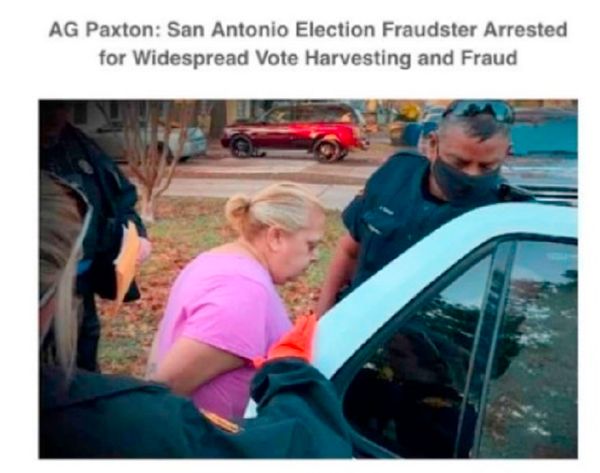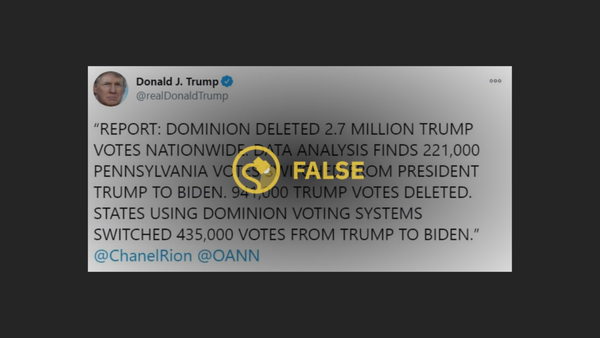It's now been almost four years since the 2020 U.S. presidential election, in which Democratic nominee Joe Biden defeated the sitting Republican president, Donald Trump. In all that time, the man who lost and the political party behind him haven't stopped claiming the election was "rigged," alleging systematic voter fraud took place that supposedly handed the election to his opponent.
Time and time again, this claim has been fact-checked and disproven.
The Campaign Legal Center, a nonpartisan voting rights group, investigated every lawsuit the Trump campaign filed after November 2020 alleging that the election had been stolen. Trump won none of those cases. Some of the cases were dismissed because his lawyers could not prove that there was fraud.
The Heritage Foundation, a conservative nonprofit organization that maintains a database of election fraud cases, found 1,513 "proven instances of voter fraud" across the U.S. However, the Brookings Institution, one of the most prestigious think tanks in the country, noted in an article about that database that those 1,513 cases happened over more than a decade of voting and hundreds of millions of cast ballots. That is far from "widespread" or "systematic" voter fraud.
That article analyzed some of the tightly contested races in 2020, including in the swing states of Arizona and Georgia. According to the Heritage Foundation's database, there were just four individual cases of election fraud in Arizona during the 2020 presidential election, and no cases of election fraud in Georgia.
Political scientists from the University of Chicago and Stanford University performed their own independent analysis on the statistical arguments used by the Trump campaign to claim widespread voter fraud. That analysis was published in the Proceedings of the National Academy of Sciences, a highly respected, peer-reviewed journal.
"Trump's supporters deployed several statistical arguments in an attempt to cast doubt on the result," the authors wrote. "Reviewing the most prominent of these statistical claims, we conclude that none of them is even remotely convincing."
At the end of the paper, the authors provided a recommendation to anyone who comes along future claims of election fraud: "First, ask whether the allegedly anomalous fact is a fact; if so, ask whether it is anomalous."
Snopes has fact-checked a number of claims alleging election fraud in the 2020 U.S. presidential election:




























